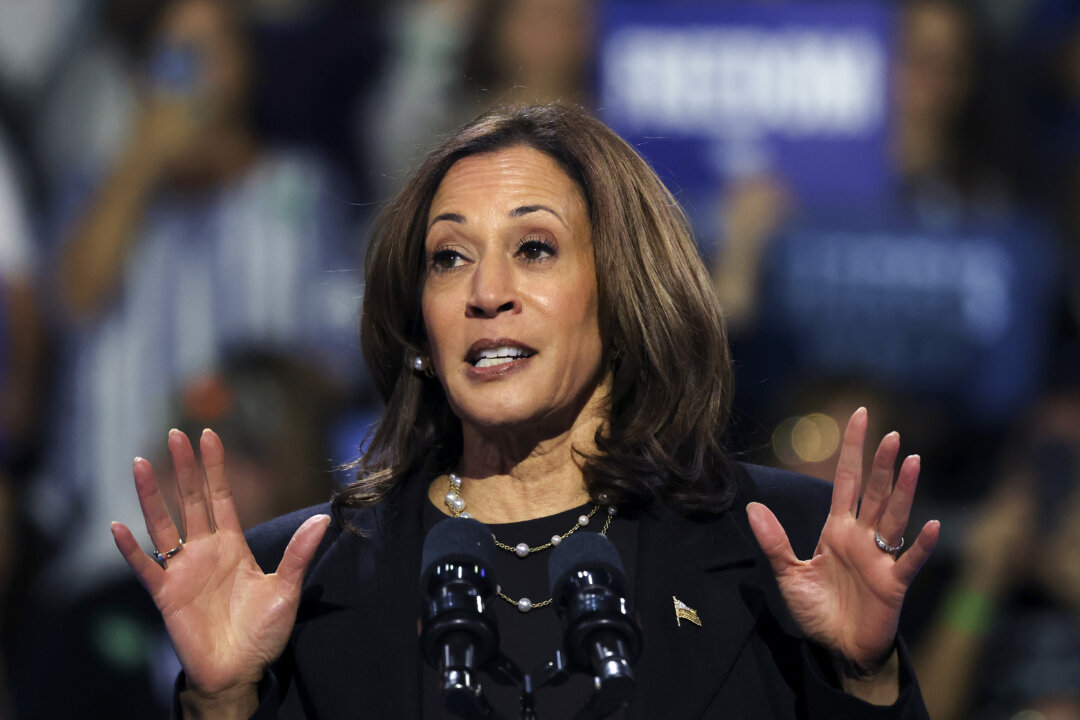The book was co-written with another author the year before Harris became California attorney general.
Vice President Kamala Harris has been accused of plagiarizing certain passages of her 2009 book, “Smart on Crime,” co-written with author Joan O’C. Hamilton.
Conservative activist Christopher Rufo, a senior fellow at the Manhattan Institute, published the passages in an Oct. 14 article citing the work of Austrian plagiarism hunter Stefan Weber. The article alleges that the 200-page Harris book includes five paragraphs with sentences and sentence fragments copied from other works without proper attribution.
“Smart on Crime” discusses the then-San Francisco district attorney’s crime policies, drawing on her career experience as a prosecutor.
The Harris campaign did not respond to a request for comment from The Epoch Times. In a statement given to CNN, a campaign spokesperson dismissed the allegations.
“This is a book that’s been out for 15 years, and the vice president clearly cited sources and statistics in footnotes and endnotes throughout,” Harris campaign spokesperson James Singer said.
Plagiarism is “presenting work or ideas from another source as your own, with or without consent of the original author, by incorporating it into your work without full acknowledgment,” according to the University of Oxford.
That includes instances in which a work is cited but the authors do not paraphrase or put quotation marks around the passages in question.
One of the paragraphs in question involves language lifted, almost word-for-word, from a John Jay College of Criminal Justice press release without quotation marks or proper attribution. The release is cited as a source inside a footnote included with the section of the text.
Another instance involves fragments copied from an NBC News report involving a 2008 study on low graduation numbers.
Sen. JD Vance (R-Ohio), the Republican vice presidential nominee, criticized Harris about the alleged plagiarism in a post on X, saying “Kamala didn’t even write her own book!” In another post, Vance pointed out that he wrote his own book, “Hillbilly Elegy.”
After The New York Times published a story refuting the idea that Harris and her co-author had directly plagiarized certain works in their 2009 book, Rufo responded in a post on X.
“The Times claims that ‘none of the passages in question took the ideas or thoughts of another writer.’ This is preposterous. Harris not only copied multiple paragraphs of other people’s work verbatim, but she often lifted those ideas directly and at face value,” Rufo said.
Rufo declined an interview request when contacted by The Epoch Times.
Last year, Rufo’s plagiarism accusations against Harvard President Claudine Gay led to her eventual resignation.
Alleged plagiarism on the presidential campaign trail is not a new phenomenon.
Joe Biden’s 1988 presidential campaign abruptly ended after reports noted the then-Delaware senator had plagiarized speeches from Neil Kinnock, the former leader of the UK’s Labour Party.
And in 2016, Melania Trump gave a speech at that year’s Republican National Convention that featured passages very similar to a 2008 speech by Michelle Obama.
The accusations resulted in a response from the Trump campaign, with staff writer Meredith McIver admitting to using Obama’s words in the speech.

